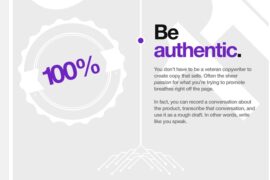As a lawyer, you might think you have all the skills and resources you need in order to be successful. But that is rarely the case for developing new business. Even a lawyer with a respectable book of business can benefit from business development training or coaching. So when an email query from a business development coach came over the transom requesting a phone conversation with a managing partner I advise, he asked my opinion: “What do you think?” This is the counsel I gave…
Enter a business development coaching relationship with your eyes wide open
Business development training and coaching is a significant investment. A knowledgeable and effective trainer/coach will charge about $5-10K, or more, for a general session, often followed by individual coaching that can cost upwards of $20K per lawyer over the course of 3, 6, or 9 months. Therefore, I truly believe that individuals who receive coaching must have some skin in the game.
Law firms may subsidize the cost for individual lawyers, but should not pay full freight. While there may be exceptions to that advice, a personal investment in professional development almost always guarantees motivation, and motivation is key for success.
A couple of red flags
I didn’t know the person who sent the query over the transom, despite my expansive law firm network. But I owed the MP my initial assessment, so I went to her website to learn more. There I found a few red flags.
- Focus is U.S., regional clients—the firm is global.
- Former practicing lawyer—didn’t indicate how many years.
- Corporate experience for a “leading global technology provider for the legal profession”—un-named, no dates, and did not specify sales experience.
- Blog content, not exceptional—basic concepts (Some attorneys need the basics; just making an observation.)
- Expertise working with associates—not a priority for this firm at this time.
Still, I wouldn’t write someone off that easily. When choosing a business development trainer or coach, chemistry is an important factor. That can only be known when you dig deeper, e.g., speak by phone, talk to references, and if merited, eventually meet in person.
But before we get that far along….
What specific business development skills do you want to acquire?
Business development involves a variety of skills. Internal due diligence is necessary to determine what needs improvement.
For example, some attorneys may have a good grasp at networking, but struggle with follow up or don’t know how close on business. Others may be experienced rainmakers, but need better organization skills, and so forth. Assess what you need before you proceed.
Do you need help in:
- Advancing networking skills
- Learning online social networking
- Scouting prospects
- Working the sales pipeline
- Filling a pipeline
- Assessing prospects
- Following up on leads
- Maintaining relationships
- Developing the value proposition
- Communicating the value proposition
- Conducting dog and pony shows
- Employing consultative selling
- Honing listening skills
- Closing sales
- Responding to objections
- Using accountability and/or measurement tools
You need to know, at least generally, what problem(s) you are trying to solve before you engage the solution. Maybe it’s everything!
Business Development Coaching Awareness
Hiring a coach is not a sliver bullet. (In folklore, a bullet cast from silver is often the only weapon that is effective against a werewolf, witch, or other monsters!) It will not cure defects such as real or perceived unfair compensation plans, e.g., legacy origination schemes or a rising tide that lifts all boats. It will not cure poor or under-funded marketing. It will not cure slackers—those who by nature avoid extra work or effort.
Clever and engaging speakers can convey concepts of which attorneys are not aware, but employing them is a challenge. The gap between education and application can be wide, and take years to close.
Those who submit to coaching must be disciplined, motivated, and determined to modify their current habits for it to be effective—comparable to building muscle by going the gym or reducing weight by just saying no. It isn’t easy. There is rarely instant gratification. It is a process. Expect a certain amount of fall-off.
Is a coach with a law degree necessary?
There are business development coaches who hold a law degree and claim that it makes them a better coach of other lawyers, as was made in the transom pitch. Hogwash. Of course, it’s important for your coach to understand your profession. And a former lawyer will know how one typically goes about developing legal business. But, you’re really looking for someone who knows the buyer/seller process—inside and out. Someone who spent time in the trenches selling to others. Corporate sales experience always trumps a legal degree in my opinion. Unless the lawyer/coach was a bonafide rainmaker, it won’t necessarily move the needle.
Those who can, do; those who can’t, teach.
Honestly, why would a lawyer who is truly good at developing business leave the practice of law? It’s too lucrative. But if it matters to you that the coach is also a lawyer, ask how successful they were at bringing in business. If so, why did she/he stop being a lawyer? Certainly you want to know how long they were in practice. This is a fair question, keeping in mind that there may be legitimate reasons other than money for their career change.
The fact is that there is no regulating body for business coaching, so just about anyone can call themselves a trainer, coach, or consultant, even if they have no practical experience! Ask. Don’t skim the surface. You really need to know and trust your business development guru. It is far too easy to tell others what they should be doing. It’s a whole other thing to have done it. Those who have, can document it. They know what works in practice, not just theory. Being good at business development is a talent. You want your coach to be talented, too.
Promising behavioral changes
Beware of the pitch that promises to produce “lasting behavioral changes.” (Such was the case in the transom email.) Does this person use a particular, proven method? I need evidence.
Ask what method(s) is used. Behavioral change is based in psychology and is considered a specialty practiced by medically trained doctors or licensed counselors and therapists. Does the coach know, scientifically, how human motivation works—which is a critical aspect of effective training—or is the promise just marketing speak? Should you believe the promise? Dig deeper.
Conclusion
Ultimately, you and I know clients choose you or your law firm for one or all of these three reasons: they (1) know, like, and trust you – a pivotal development that naturally occurs in the course of building a relationship; or (2) you have a very specific specialization with a proven reputation in the particular jurisdiction needed for the immediate issue; or, (3) someone they know, like, and trust has referred them to you.
That truth can be told in a 5-minute talk. Simply tell attorneys to develop strategic relationships, find a niche, get really good at what they do, and don’t be afraid to tell/show others that they are really good at what they do. Use marketing and public relations professionals to help you tell that story. Be visible. Be bold. Stay in touch with those people who can refer business—and don’t forget that is a two-way street. Baaaam!
But, if you, (managing partner), are truly looking to up your firm’s game, you need that 5-minute talk and more. The firm can benefit from training. But, you need your plan. And if individual coaching is an option, you need the right coach and the right people to coach. Consider that some personalities will never be good at developing networks and relationships of the caliber needed to secure PROFITABLE new business. And, some people just won’t or can’t change behaviors. Therefore, all coaching subjects need to be carefully vetted, as carefully as the coach you consider.
Support the process, but not without due diligence. And ensure that every participant has some skin-in-the-game.
Be in it to win it!



![Are You [A] Lawyer Online?](http://virtualmarketingofficer.com/wp-content/uploads/2011/05/scarlet-letter-11.jpg)



Nice Information Shared, lawyer cherry hill nj says Thank you for sharing this Information.